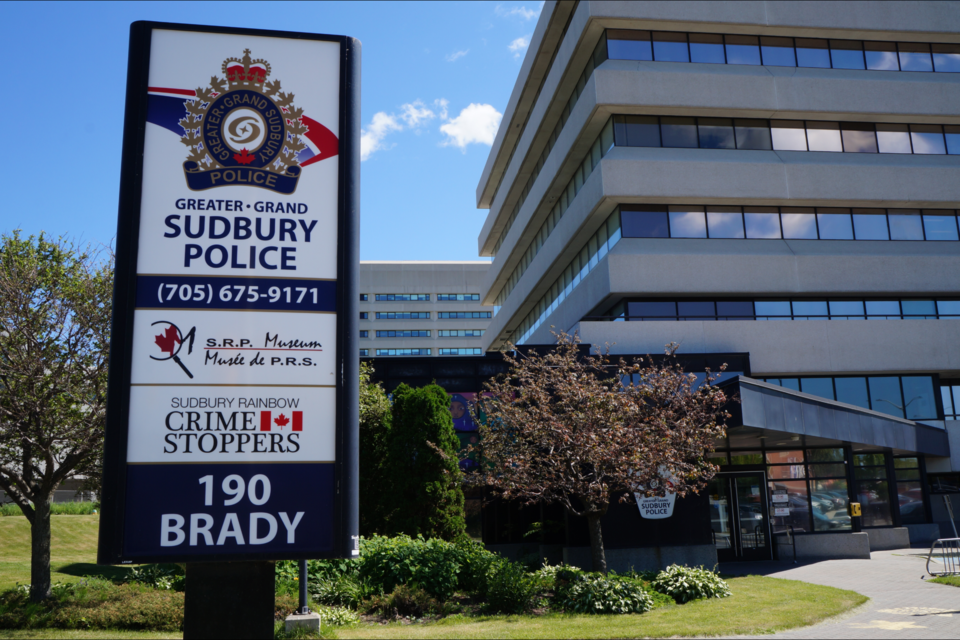How long does it take Greater Sudbury police to respond to calls for service?
This is the question to which Sudbury.com sought an answer from Greater Sudbury Police Service on June 30. Chief Paul Pedersen inspired the inquiry during the June 29 Greater Sudbury Police Services Board meeting, at which he cited a need to reduce call backlogs.
It took some back and forth between Sudbury.com and GSPS, but we finally had our questions answered, at least partially, on Aug. 19.
Police categorize calls for service as Priority One through Priority Five.
Priority One calls involve violence, and the GSPS response time target is within four minutes. An audit of last year’s numbers represents an average response time of 5.9 minutes.
Less-urgent Priority Two calls should be responded to within 10 minutes, but were responded to at an average time of 12.7 minutes last year.
Priority Three calls, which are also considered “in progress” but do not involve violence, must be responded to within an hour. From Jan. 1 to Aug. 21, 2022, the average response time for priority three calls was 15 minutes, GSPS reported to Sudbury.com.
Priority Four calls are those where there might be a suspect, but they’ve left the scene so the incident is not considered in progress. These calls must be responded to “as soon as possible,” and it’s these calls police consider as part of the call backlog Pedersen cited in June.
These calls are less time-sensitive, and officers dealing with a Priority Four calls are occasionally called away to attend incidents higher up in the priority list.
Sudbury.com interviewed GSPS Deputy Chief Sara Cunningham in order to seek clarity and context on the data provided.
Aug. 19 started off with 22 outstanding Priority Four calls on the backlog, of which Cunninghman said five have been outstanding for a few days or more, with “numerous attempts” by the communications team to get hold of the complainant.
As such, she said it’s not only officer availability that results in “stale calls” contributing to the call backlog.
When it comes to Priority Four calls, Cunningham compared the police response to the response of an internet service provider or phone company.
“We might not be there that day, but it’s no different than … when you call Bell Canada … or wherever you get your internet from, and you have an issue,” she said. “They’re going to send a service person probably in a couple of days. It’s not going to happen right away because it’s not a priority call for us, and we do our best to triage.”
Priority Five calls do not have a target time attached to them, as they involve alternative responses, such as tips made online using the CopLogic online reporting tool.
Asked to respond or provide context to the average top-priority response times exceeding GSPS’s set maximums last year, Cunningham said there are a variety of factors at play that impact police response.
“So, we’re exceeding by a minute,” she said. “It depends on the officer’s confidence in driving at excessive speeds, it depends on the weather of the night, it depends on, you know what I mean, so much: Where are they coming from when they’re being dispatched on the call? Did we call them out of the station? Did they actually have to get to their cruiser to get out on the road?
“So, like, for you to say, like we’re exceeding by a minute? Like, I wouldn’t even go down that road,” she said.
Cunningham later added the size of the municipality is also relevant when it comes to response times. Police respond to an average of approximately 200 calls per day, excluding self-generated calls, such as when police witness something worth responding to while on patrol.
“We try and do it based on data and analytics and calls for service and hotspots and trends and really intelligence-based-led policing is where we deploy our resources,” she said. “This is a really, really complex issue.”
It was a long road for Sudbury.com to get this response from city police.
Sudbury.com sent an inquiry to Greater Sudbury Police Service communications staff regarding police response times on June 30 in reaction to Pedersen’s comments during the previous day’s police board meeting, at which he expressed concern regarding call backlogs.
Police spokesperson Kaitlyn Dunn noted on July 4 the inquiry would be “prioritized so that it can be done ASAP.”
After follow-up emails in the subsequent weeks, Dunn clarified last week the delay was due to “having the appropriate spokesperson available as there were conflicting operational priorities.”
Sudbury.com was finally connected with Cunningham on Aug. 19 for a phone interview, but she lacked some of the data during the interview, so it took additional time to gather the necessary information to complete the story.
During the Aug. 19 interview, Cunningham told Sudbury.com she was hesitant to share response time numbers with the media as it doesn’t present “a good picture to the public.”
Tyler Clarke covers city hall and political affairs for Sudbury.com.
